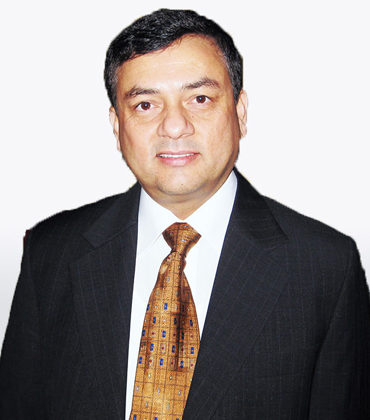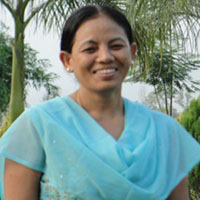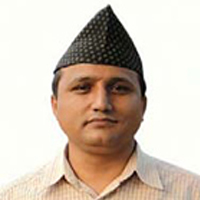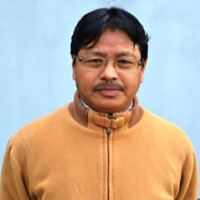Dirgha J. Ghimire, a Social Demographer, received his Ph.D. from the Department of Sociology at the University of Michigan, Ann Arbor. Dr. Ghimire holds joint appointments as Executive Director at the Institute for Social and Environmental Research in Nepal (ISER-N), Research Associate Professor in the Population Studies Center (PSC) at the University of Michigan (UM), USA, and Adjunct Professor at University of Agriculture and Forestry in Chitwan, Nepal. Dr. Ghimire studies social change, family and demography, population and environment dynamics and research methods.
Dr. Ghimire’s interest in understanding social change and its influence on family emerged from his experiences working on development projects aimed at bringing positive change to the lives of the poorest of the poor in Nepal. His research within family and demography revolves around family formation, population mobility and dynamics, education, health and welbeing. Another major area of Dr. Ghimire’s research revolves around understanding the interplay between population and environmental processes population change, migration, public health and land use, agriculture and agricultural productivity, terrestrial biodiversity, environmental degradation, and household energy use. More recently, his work focuses on consequences of social and ecological changes in population health (both psychological and physical health) and wellbeing. Additionally, Dr. Ghimire has a methodological focus on development of context-specific measurement, and state-of-the-art primary data collection and longitudinal analyses. He also regularly teaches courses on Mixed Method Data Collection and Survey Data Analysis.
These research themes have provided great synergy leading examination of social change as it relates to population dynamics, population dynamics as it relates to environment, and environment as it relates to social change. The common conceptualization of interplay between structural and ideational causes of change and behavior carries through all these themes. The connections across these themes provide endless stimulation for Dr. Ghimire’s research and teaching.
Indra Kumari Chaudhary (M.A. Sociology) is Study Manager at the Institute for Social and Environmental Research-Nepal (ISER-Nepal) Fulbari, Chitwan since 2000. As a Study Manager,Ms. Chaudhary is involvedin questionnaire design, translation, pre-testing, finalization of data collection instruments and survey administration and management.Ms. Chaudharyis also responsible to provide General Interviewing Techniques (GIT) Training and Study Specific Training to interviewers prior to survey data collection in order to ensure high quality data collection in the field. Ms. Chaudhary manages, monitors, evaluates and controls the quality and reports about field activities. Ms. Chaudhary has taken short term courses, Survey Research Techniques, Questionnaire Design, Questionnaire Testing Methods and Qualitative Methods: Overview and Semi-structured Interview training from the University of Michigan in 1999 and 2003, respectively. Ms. Chaudhary was also in-house trained on Survey Data Analysis Techniques in July 2003 and June 2012 at ISER-Nepal.
Bishnu Prasad Adhikari (M.A. Sociology) is a Data Manager at The Institute for Social and Environmental Research-Nepal (ISER-Nepal) Fulbari, Chitwan since 2001. As a Data Manager, Mr. Adhikari is responsible to manage longitudinal panel data, data quality control and analysis of data, manage computer assisted data collection programming, and teach short-term courses; Survey Research Techniques and Survey Data Analysis Training as a teaching assistant at ISER-Nepal. Mr. Adhikari has taken several short term courses from the University of Michigan in 2001, 2009 and 2013, namely Survey Research Techniques, Questionnaire Design, Survey Data Analysis and Computer Assisted Personal Interview (CAPI) Operation and Data Management Training.
Mr. Tula Ram Sijali (MEd and MA) is a study manager at the Institute for Social and Environmental Research-Nepal (ISER-N) since 2013. As a study manager, Mr. Sijali is responsible for managing the epidemiological studies in the organization. He is managing a case-control, and cross sectional study in the organization funded by National Institute for Environment Health Sciences (NIEH) and Global Alliance for Clean Cookstove USA. Mr. Sijali has more than two decades working experience in the development sectors with different national and international development organizations. Mr. Sijali has taken Survey Data Analysis training from the institute in 2015.





